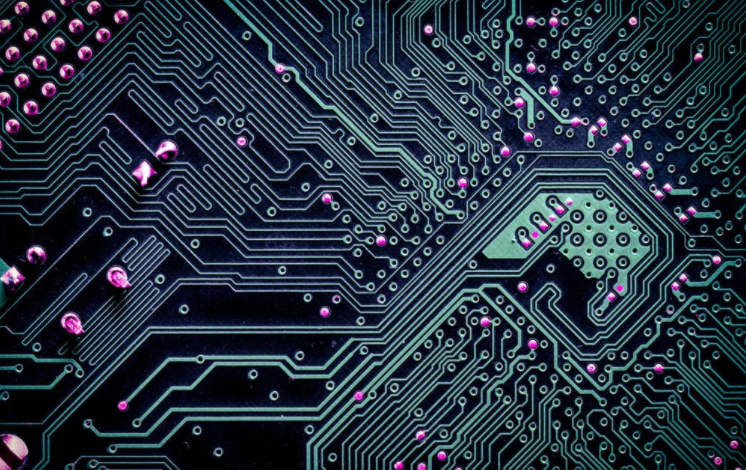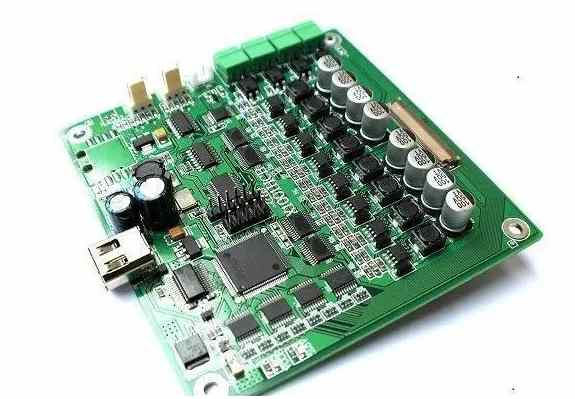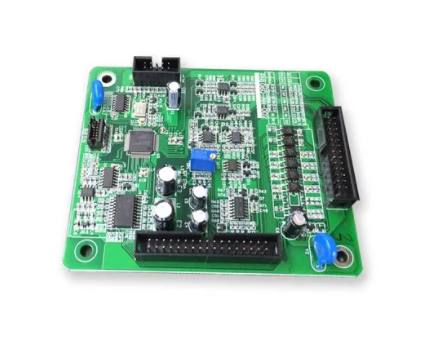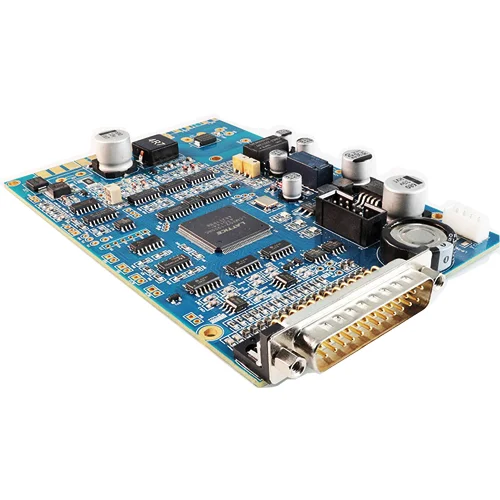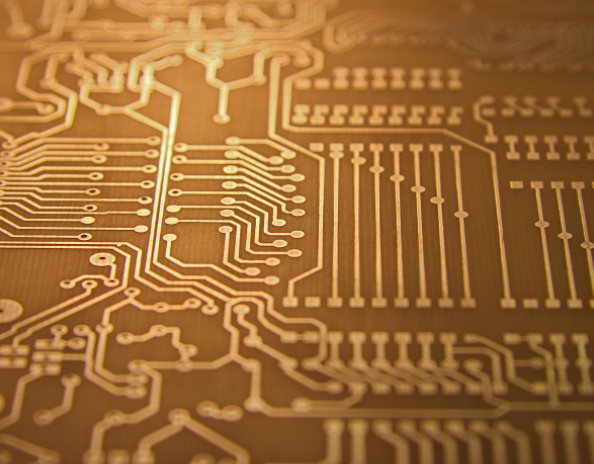
Precautions for PCB stacking design
What problems should be paid attention to in the design? Let the engineer tell you the following When designing stacks, it is important to follow two rules:
1.) Each tracking layer must have an adjacent reference layer (power supply or grounding);
2) The adjacent main power layer and ground plane shall be separated to provide greater coupling capacitance.
PCB board
Let's take two-layer, four layer and six layer boards as examples:
1. Lamination of single-sided PCB and double-sided PCB
For double-layer boards, the control of EMI emission is mainly about wiring and layout. The electromagnetic compatibility of single-layer and double-layer plates is becoming more and more prominent. The main reason for this phenomenon is that the signal loop area is too large, which will not only produce strong electromagnetic radiation, but also make the circuit sensitive to external interference. In order to improve the electromagnetic compatibility of the circuit, a simple method is to reduce the loop area of key signals; Key signals mainly refer to signals that generate strong radiation and signals that are sensitive to the outside world. Single layer and double layer boards are usually used for low frequency analog design below 10KHz:
1) The power supply on the same layer is arranged radially, and the sum of the lengths of parallel lines;
2) When running the power cord and ground wire, they should be close to each other; Lay a ground wire on one side of the key signal wire, which should be as close to the signal wire as possible. In this way, a smaller loop area is formed and the sensitivity of differential mode radiation to external interference is reduced.
3) If it is a double-layer circuit board, the ground wire can be laid along the signal line on the other side of the circuit board, close to the bottom of the signal line, and the line should be as wide as possible.
2. Four layer laminate
1)SIG-GND(PWR)-PWR(GND)-SIG;
2)GND-SIG(PWR)-SIG(PWM)-GND;
For the above two stacking designs, the potential problem is the traditional 1.6mm (62mil) plate thickness. The layer spacing will become very large, which is unfavorable to control impedance, interlayer coupling and mask; In particular, the large spacing between the power supply ground planes reduces the board capacitance, which is unfavorable for filtering noise. Usually used when there are more chips on the board. This scheme can achieve better SI efficiency
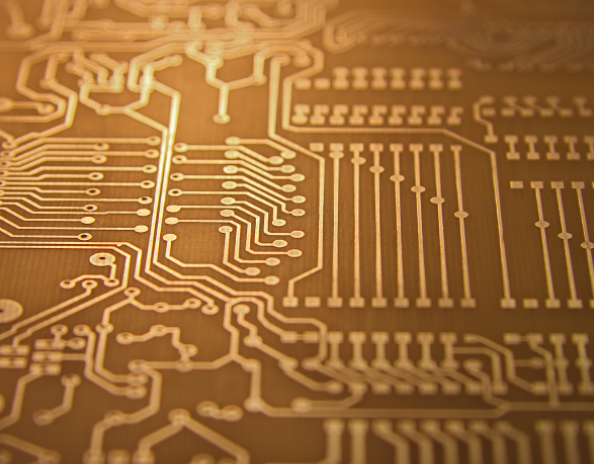
The EMI efficiency is not very good, mainly controlled by the trajectory and other details. When the chip density on the circuit board is low enough and there is enough area around the chip, the second solution is usually used. In this scheme, the outer layer of the PCB board is the ground layer, and the middle two layers are the signal/power layer. From the perspective of EMI control, this is an existing 4-layer PCB structure. Note: the distance between the two intermediate layers of the signal and power mixing layer should be widened, and the wiring direction should be vertical to avoid crosstalk; The size of the board of directors should be appropriately controlled to reflect Rule 20H.
3. Six layer plate lamination
For the design of high chip density and high clock frequency, the design of 6-layer plate should be considered. The recommended stacking method is:
1)SIG-GND-SIG-PWR-GND-SIG; This superposition scheme can obtain better signal integrity. The signal layer is adjacent to the ground layer, and the power layer is paired with the ground layer. The impedance of each tracking layer can be well controlled, and the two layers can well absorb magnetic lines of force.
2) GND-SIG-GND-PWR-SIG-GND; This solution is only suitable for the case where the device density is not very high. This stack has all the advantages of the above stack. The top and bottom floors are relatively complete and can be used as better mask layers Therefore, EMI performance is superior to this scheme Compared with the first scheme and the second scheme, the cost of the second scheme greatly increases PCB


